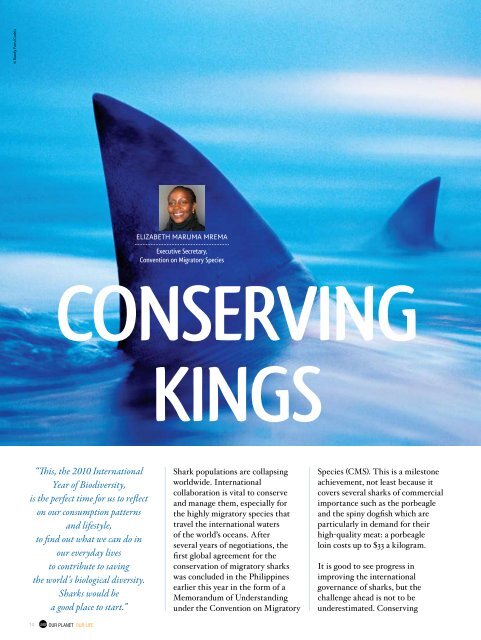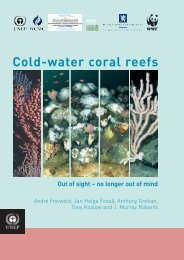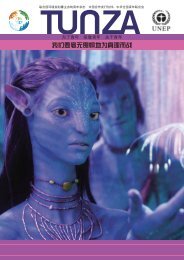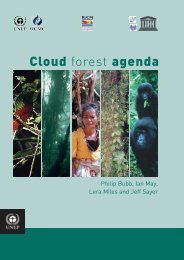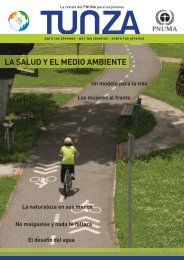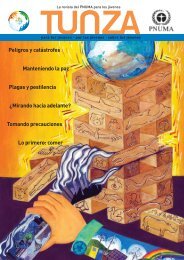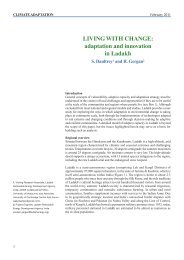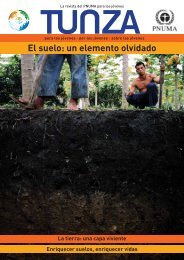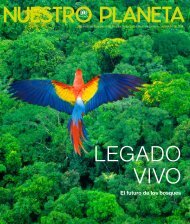BIODIVERSITY - Our Planet
BIODIVERSITY - Our Planet
BIODIVERSITY - Our Planet
You also want an ePaper? Increase the reach of your titles
YUMPU automatically turns print PDFs into web optimized ePapers that Google loves.
© Randy Faris/Corbis<br />
ELIZABETH MARUMA MREMA<br />
Executive Secretary,<br />
Convention on Migratory Species<br />
Conserving<br />
kings<br />
“This, the 2010 International<br />
Year of Biodiversity,<br />
is the perfect time for us to reflect<br />
on our consumption patterns<br />
and lifestyle,<br />
to find out what we can do in<br />
our everyday lives<br />
to contribute to saving<br />
the world’s biological diversity.<br />
Sharks would be<br />
a good place to start.”<br />
Shark populations are collapsing<br />
worldwide. International<br />
collaboration is vital to conserve<br />
and manage them, especially for<br />
the highly migratory species that<br />
travel the international waters<br />
of the world’s oceans. After<br />
several years of negotiations, the<br />
first global agreement for the<br />
conservation of migratory sharks<br />
was concluded in the Philippines<br />
earlier this year in the form of a<br />
Memorandum of Understanding<br />
under the Convention on Migratory<br />
Species (CMS). This is a milestone<br />
achievement, not least because it<br />
covers several sharks of commercial<br />
importance such as the porbeagle<br />
and the spiny dogfish which are<br />
particularly in demand for their<br />
high-quality meat: a porbeagle<br />
loin costs up to $33 a kilogram.<br />
It is good to see progress in<br />
improving the international<br />
governance of sharks, but the<br />
challenge ahead is not to be<br />
underestimated. Conserving<br />
14<br />
OUR PLANET OUR LIFE


